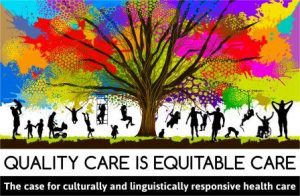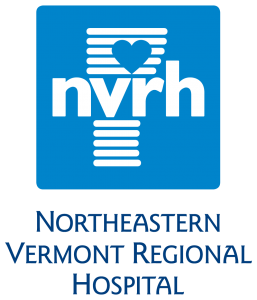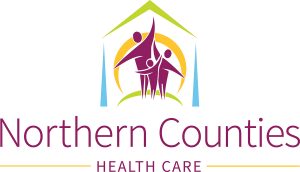
Quality Care is Equitable Care; The case for culturally and linguistically responsive health care.
What is health equity, and why does its attainment matter in a state with predominantly white and rural residents and practitioners? How does discrimination (even unintentional) in American health care affect health inequities and health disparities experienced by minority and other underserved populations? This series will present:
- Why quality healthcare must be equitable care;
- How ignoring racial and ethnic health disparities is costly; and
- How culturally and linguistically responsive practices are a necessary component to achieve a more equitable health care system.
In this 5-part professional development series, we will candidly address these and related questions and offer interventions and strategies that reduce the impacts of discrimination and biased care.
Session 1: Unmasking Health Disparities through a Health Equity Lens
We explore the meaning of health equity as the primary lens for assuring quality care for all. Evidence of differences in health and health care experiences by race and ethnicity in rural areas will be presented, as well as demographic megatrends that influence the practice of medicine and patient care in a globally mobile world.
Session One Recorded Webinar & Resources
Session 2: Making the Case for Health Equity in Vermont – From Evidence to Action
In the second of a 5-part virtual series, we explore the business, medical (quality and safety), and legal “cases” for health equity in medical care. With a special focus on racial and ethnic disparities,
language access and the emerging issue of global medicine, this session will address:
♦ Implications of demographic megatrends for patent care and the health care workforce;
♦ Introduction to the national CLAS Standards and the law of language access;
♦ National best practices, tips, tactics, and recommendations for improving health equity to racial and ethnic minorities, LEP and Deaf and Hard of Hearing, immigrants and refugees, the LGBTQ population, and other non-traditional patent populations
Session Two Recorded Webinar & Resources
Session 3: Reducing Implicit Bias in Health Care: Moving toward Equal Treatment
This interactive session will address the importance of recognizing implicit bias held by physicians during the clinical encounter, health care organizations, and even patients. With a focus on the harmful impacts of implicit bias on patient health, care, quality, and equal treatment, Dr. Stacie Walton, the expert presenter, will also offer evidence-based tools to reduce bias and, ultimately, racial and other health disparities.
Session Three Information Flyer
Session Three Recorded Webinar & Resources
Session 4: Best Practices for Equitable Health Care
This Session will introduce two essential clinical competencies, often overlooked by clinicians and other practitioners, to ensure a culturally responsive clinical encounter that can help shape assessment, treatment and outcomes, including:
- Strategies to work effectively with qualified medical interpreters (face-to-face and by phone)
- Tools for the practitioner to explore the patient’s culturally determined beliefs around health and illness, through applying explanatory models of care
Participants will gain knowledge and skills to incorporate practical tools to improve care quality and performance.
PRESENTERS:
Heather Link, MD, General Pediatrician, the University of Vermont
Health Network
Linda Li, LICSW, Community Health Centers of Burlington, VT
Session Four Information Flyer
Session Four Recorded Webinar & Resources
Session 5: Building and Cultivating Culturally-Effective Organizations
This session will introduce participants to the Culturally Effective Organizations {CEOrgs) Framework, a national roadmap to guide health care organizations to improve capacity and effectiveness in providing equitable care and services. Participants will:
⇒ Learn how to distinguish individual, collective and organizational level cultural competence.
⇒ Learn how to distinguish individual, collective and organizational level cultural competence.
⇒ Identify organizational, structural, and clinical strategies to implement culturally appropriate policies and
PRESENTERS:
Paula Smith, MBA, EdD
Director, Southern New Hampshire Area Health Education Center (AHEC)
Trinidad Tellez, MD
Equity Consultant, Southern New Hampshire Area Health Education Center (AHEC)
Session Five Informational Flyer
Session Five Recorded Webinar & Resources
The planning committee for this continuing education series:
Gail Auclair, MSM-HCA, BSN, RN, CEO, Little Rivers Health Care Inc., Bradford, VT
Katina Cummings, MCP, Health Workforce Program Manager, Northern Vermont Area Health Education Center (AHEC)
Virginie Diambou, Racial Equity Director, Champlain Valley Office of Economic Opportunity, Burlington, VT
Betsy Fowler, MSW, DBH, LICSW, LADC, Director of Behavioral Health, Northern Counties Health Care Inc., St. Johnsbury, VT
Marcia LaPlante, Equity Technical Advisor, Health Operations Center, Vermont Department of Health
Nicole M. LaPointe, MSW, Executive Director, Northern Vermont Area Health Education Center (AHEC)
Mckalyn Leclerc, MD, Family Physician, Northern Counties Health Care Inc., Hardwick, VT
Emily Ruth LeVan, DNP, RN, APRN, NP-C, ENP-C , Copley Hospital, Morrisville, VT
Laura Newell, MSHCA, VP of Medical Practices, Northeastern Vermont Regional Hospital, St. Johnsbury, VT
Julie Parker, LCMHC, Assistant Director, Vermont Blueprint for Health, Department of Vermont Health Access
Lynette Reep, CI, CT, Interpreter Coordinator, Language Access Services, University of Vermont Medical Center
Kate Simmons, MBA, MPH, Director of Operations, Bi-State Primary Care Association, VT & NH
We would like to thank the following sponsors for supporting this series:


